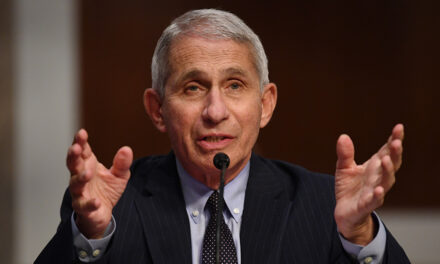We support our Publishers and Content Creators. You can view this story on their website by CLICKING HERE.
Voters in eight states approve ballot measures banning noncitizens from voting in federal, state or local elections
Eight states have passed ballot measures that ban noncitizens from voting.
Voters in eight states – Iowa, Idaho, Kentucky, Missouri, North Carolina, Oklahoma, South Carolina and Wisconsin – have adopted these provisions that restrict noncitizen voting, some by very wide margins.
These referenda were pushed by Republicans and conservatives alike as President-elect Donald Trump and his supporters contended that there was clear evidence that noncitizens were voting in numbers significant enough to influence elections. They further argue that this would ward off any attempts by state and local governments to allow noncitizen voting in local, state and possibly even federal elections. (Related: Supreme Court blocks attempt to restore names of around 1,600 noncitizens to Virginia voter rolls.)
Opponents of these measures claim that the goal of Republicans is to use the measures to lay the groundwork for the passage of future legislation to suppress the votes of citizens and of recently naturalized immigrants, while scaring other voters into distrusting the electoral process.
Clear majorities in eight states came out in opposition to noncitizen voting
In Iowa, the state legislature-supported amendment to the constitution states that only a citizen of the United States can vote. Additionally, the ballot measure allows 17-year-olds to vote in primary elections provided that they will be 18 by the general election. This measure passed with 77.1 percent in favor and 22.9 percent against.
In Idaho, the ballot measure specifically prohibits state and local governments from passing future state laws or municipal ordinances that would allow noncitizens to vote. This measure passed with 64.9 percent in favor and 35.1 percent against, and it was coupled with another ballot measure that would have replaced the state’s partisan primaries with open top-four primaries and ranked-choice voting for general elections. This latter proposition was defeated.
In Kentucky, Amendment 1 to the Constitution of the Commonwealth of Kentucky, which passed with 62.5 percent voting in favor and 37.5 percent voting against, similarly prohibits state and local governments from ever allowing noncitizens to vote in any kind of public election.
In Missouri, Amendment 7 – which passed by 68.5 percent in favor and 31.5 percent against – was a two-fold amendment. Firstly, it, like the three other states before it, prohibits local governments and the state government from allowing noncitizens to vote. Additionally, Amendment 7 also bans the state from enacting ranked-choice voting in all elections held in the state.
The measures of North Carolina and Oklahoma similarly provided in their respective state constitutions that only citizens of the U.S. may vote in federal, state and local elections in their states. They both passed by whopping margins of 77.6 percent and 80.7 percent in favor, respectively.
In South Carolina, a record-high percentage of 85.9 percent of voters approved the state’s own measure requiring citizenship to vote in any elections in the state.
Finally, in Wisconsin, 70.5 percent of voters approved the Citizenship Voting Requirement Amendment to the state constitution. This amendment states that only U.S. citizens who are 18 years old or older can vote in federal, state or local elections.
Steven Camarota, director of research for the Center for Immigration Studies, noted that while these eight states join a growing list of states that prohibit noncitizens, legal or otherwise, from participating in elections, their mere presence has already tilted the country’s electoral system due to the fact that the Census Bureau does not distinguish between citizen and noncitizen residents of states.
“Because of the way reapportionment and redistricting work, immigration, including illegal immigration, redistributes political power in Washington,” said Camarota. “This redistribution is directly proportional to the scale of legal and illegal immigration and exists independent of whether or how immigrants themselves vote.”
Watch this episode of “The Breanna Morello Show” discussing how noncitizens are allowed to vote in local elections in the District of Columbia.
This video is from the MyPodcastDropped2320 on Brighteon.com.
More related stories:
Sources include:

 Conservative
Conservative  Search
Search Trending
Trending Current News
Current News 





